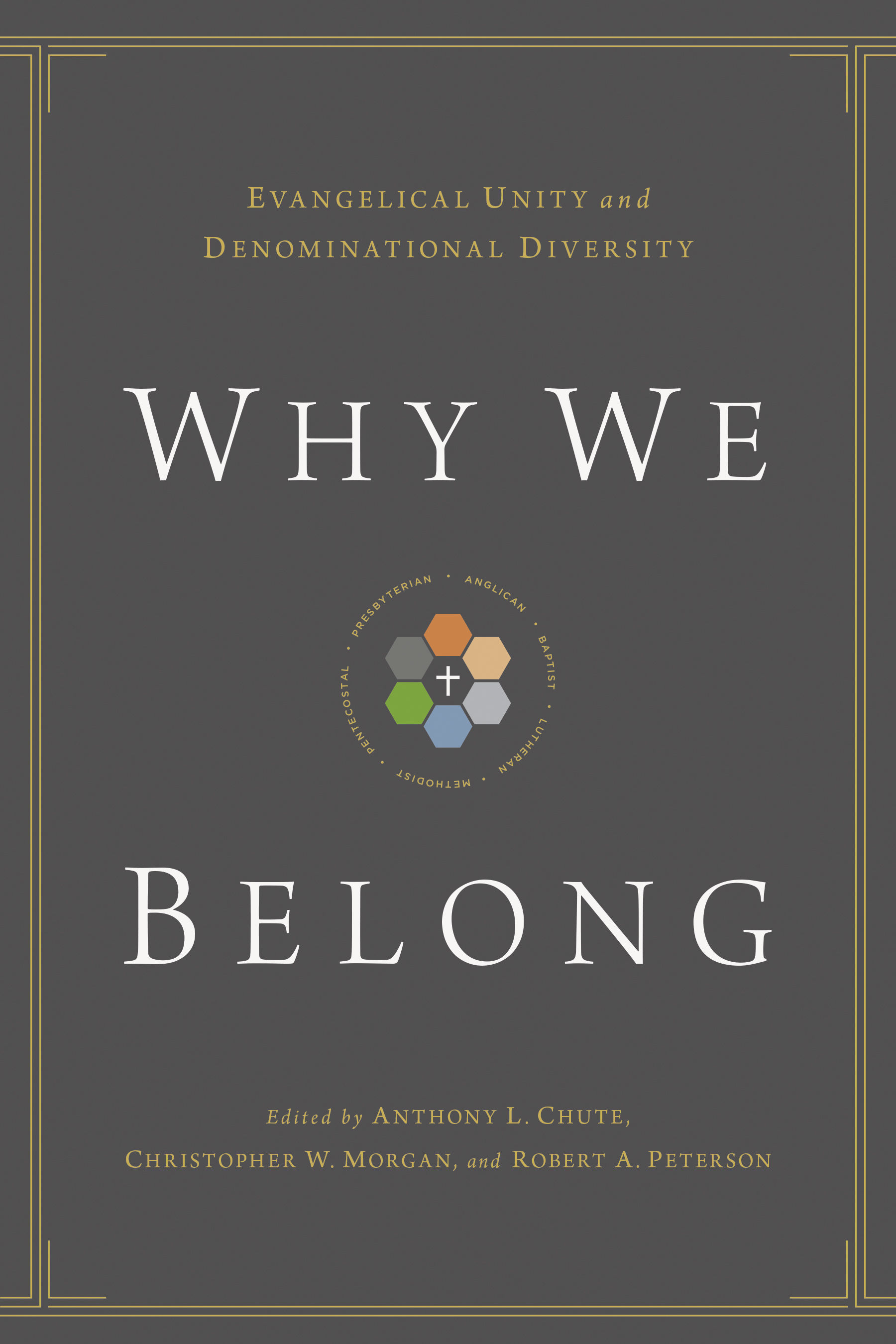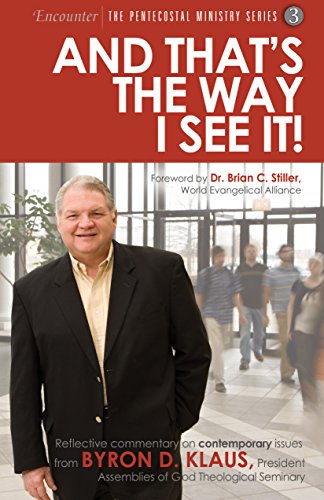| June 27, 2018 |
no comments
 Anthony L. Chute, Christopher W. Morgan, and Robert A. Peterson, eds., Why We Belong: Evangelical Unity and Denominational Diversity (Wheaton, Illinois: Crossway Books, 2013), 251 pages, ISBN 9781433514838.
Anthony L. Chute, Christopher W. Morgan, and Robert A. Peterson, eds., Why We Belong: Evangelical Unity and Denominational Diversity (Wheaton, Illinois: Crossway Books, 2013), 251 pages, ISBN 9781433514838.
Can Evangelicals unite amid its constituencies’ diverse denominational affiliation? Nine North American religious scholars from the Anglican, Baptist, Lutheran, Methodist, Pentecostal and Presbyterian denominations explain how their own confessional membership supports their corollary belonging as Evangelicals. Of the contributions, seven of all nine professors were presidents and deans of schools in theological educational at the time the volume was published, and so this volume carries implicit weight coming from the personal reflection of senior administrators and leaders in their respective ecclesiastical theological education institutions.
Learn about navigating denominational identity, evangelical affiliation, and how their dual traditioning relates with the historic Christian faith.
The volume opens with three introductory essays. Baptist Anthony Chute reminds that denominational identity is more than just strong-will people promoting religious partisanship. Evangelical identity can nurture unity even as members can maintain their own denominational affiliation. “If Christian unity is predicated on the gospel first” then, Christians do not have to compromise on their core convictions. Genuine unity seeks more than an “outward appearance of being unified” and members recognize that “God’s family is much larger than their own traditions” (pp.15-16). Chute’s other essay in the book recovers stories about how “one Lord and one faith” find “many expressions” in the founding of the six denominations (pp. 37-64). Despite the history of contextual factors that led to the fragmentation of the churches (into denominations), Chute observes that denominationalism provides opportunities for common and/or collaborative witness in today’s “denominational age”; he reasons that Protestant Christians today rarely denounce divisions using older nomenclature of “orthodoxy versus heresy” (p. 43). Placed between Chute’s two essays, Christopher Morgan proposes that when Christians stand together, what he calls, the true unity among true believers, they display God’s unity, glory and power (pp. 19-36).
Does an evangelical-ecumenicity truly reflect the ecumenicity of the many tapestries of the Christian faith?
Readers cannot miss the contributors’ personal testimony and historical-theological plea for evangelical unity. After the introductory essays, six essayists demonstrate how they maintain their dual ecclesial belongings as evangelicals in their varied Protestant denomination. These essays highlight milestones, persons, and succinct thoughts in the historical development of their denominational identity, and the relationship between ecclesiastical families. Gerald Bray focuses on how his Anglican traditioning relates with other Protestant, national, and historic pre-English Reformational churches including Roman Catholics, Eastern Orthodoxy and non-Chalcedonian churches (pp. 65-92). Bray reminds that Anglicans’ enduring legacy seeks an openness to “other ideas and influences” and they may willingly “compromise on nonessentials,” and keeps an interest in “the life beyond the narrow confines of theological controversy” (p. 87). Timothy George proposes that for him, a “hierarchy of ecclesial identity” as a Protestant, Evangelical and Baptist adds to his more primary identity as a “Trinitarian Christian” who stood in continuity with historic believers who adhere to the theological consensus of the first five centuries of Christianity (pp. 93-110). Douglas Sweeney maintains that after experiencing various Protestant churches, he finds comfort, with Luther, in “the real, objective presence of God in the world and the saving grace in Scripture and sacrament” (p. 119; cf. pp. 111-132). Still, Sweeney urges no one to maintain a self-sufficiency of Lutheranism or preserving only evangelicalism alone. Sweeney recommends that evangelicals and Lutherans join “the true Christians everywhere (
fides quae creditur) and hold unto the kind of faith that clings in a personal way to what is held by “Christians everywhere (
fides qua creditur)” (p. 132). Timothy Tennent explains why he remained a Methodist because of, what he calls, the time-transcending elements in his Methodist Wesleyan tradition (pp. 133-150). Byron Klaus defends a Pentecostalism that is neither a “shallow emotionalism” nor an “insane experimentalism” (pp. 151-176). Bryan Chapell shows how his Reformed theology, worship and polity inform his practice as a Christian and as an ordained minister (pp. 177-208).
Readers will learn about navigating denominational identity, evangelical affiliation, and how their dual traditioning relates with the historic Christian faith. The last essay in the volume reviews the historical developments, the contemporary challenges, and the global opportunities for the renewing denominations. Baptist David Dockery explains how those who seek to renew their denominations do so by their emphasis not so much on theological distinctives but by their anchor and practice on denominational polity, liturgical practice. Indirectly, Dockery’s essay also encourages the traditions to become more trans-generational and transcontinental while maintaining fidelity to the historic Christian faith in doctrine and in its gospel-centered mission (pp. 209-232).
Tags: belong, denominational, diversity, evangelical, unity
Category: In Depth, Spring 2018
 Anthony L. Chute, Christopher W. Morgan, and Robert A. Peterson, eds., Why We Belong: Evangelical Unity and Denominational Diversity (Wheaton, Illinois: Crossway Books, 2013), 251 pages, ISBN 9781433514838.
Anthony L. Chute, Christopher W. Morgan, and Robert A. Peterson, eds., Why We Belong: Evangelical Unity and Denominational Diversity (Wheaton, Illinois: Crossway Books, 2013), 251 pages, ISBN 9781433514838.


